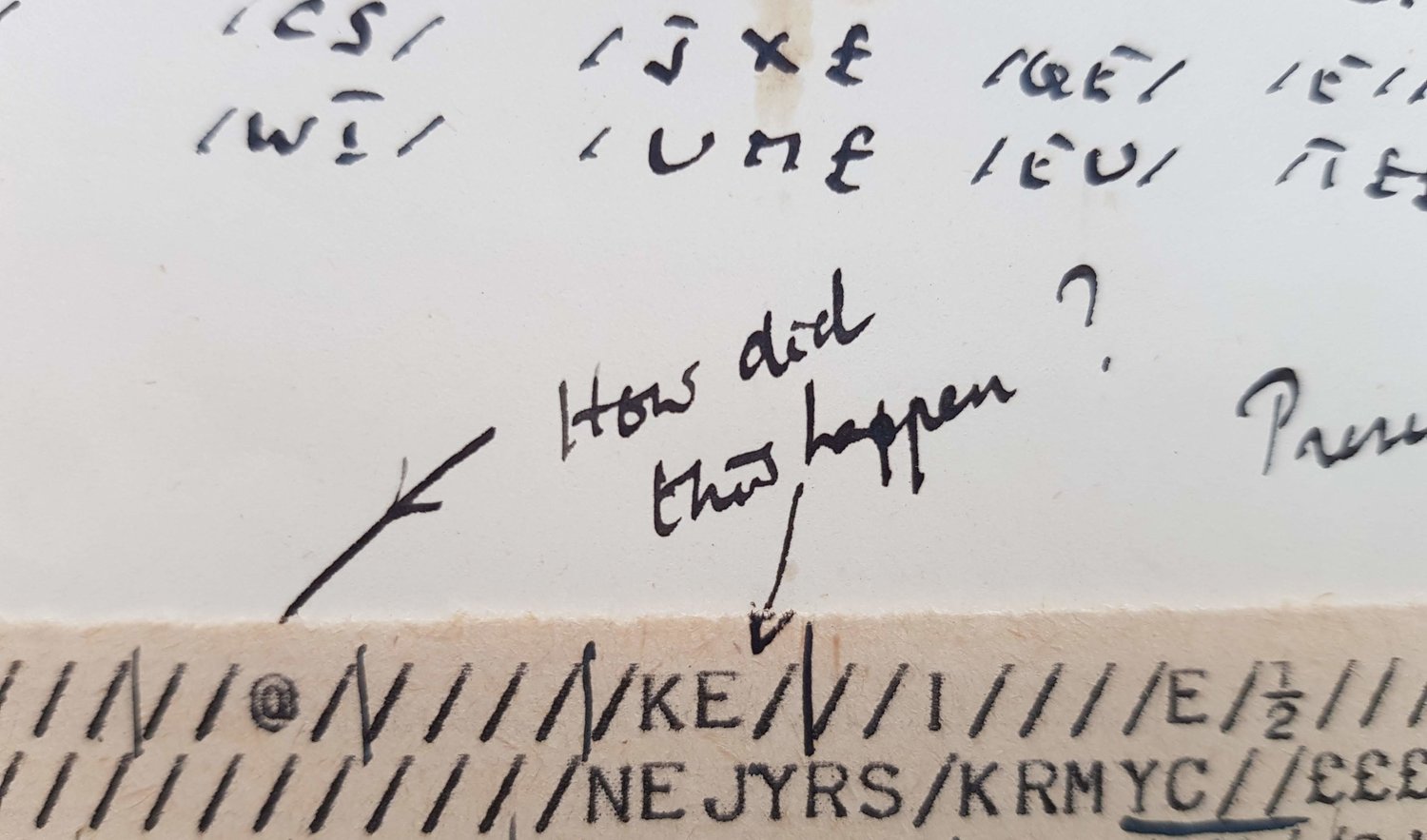This is probably not Joan Clarke, a Bletchley Park WREN and cryptographer of some stature. Twitter often thinks it is, because GCHQ tweeted this picture a couple of years ago implying that it was her. But then they deleted the tweet, ignored all requests for clarification, and pretended it never happened. (Perhaps they’ve lost the intern’s WhatsApp password.) Who it is, I do not know, and I hope I can be forgiven for posting her image in the hope someone can tell me.
Joan Clarke was certainly a WREN. Her effective position, rather than military rank, in the Bletchley Park hierarchy is not clear; she does seem to have been specifically recruited for her mathematical talent, and to have spent at least some time doing the WREN-work, but it’s not obvious if she was intended from the beginning to join the mainly male elite analysts, or if her talent was recognised while at BP; I suspect the former.
This is also not Keira Knightley.
Max Newman, for all his faults, emerges as a quiet hero of Alan Turing’s Manchester, not least for saying as he did in court ‘Alan Turing is my friend’. He is remembered in most of the Bletchley Park histories as a talented manager with a knack for making his team feel valued. So, even after many months of trying to understand gender in the 1940s, it was still surprising to read this, in an otherwise highly complimentary US military report on Newman’s section at Bletchley Park. In short, the US was told that Bletchley (ie Newman) wasted resources by over-segregating work:
The structure of the organisation was built on the concept that the male members should carry the responsibility for any decisions and the work should be reduced to a routine so that the Wrens were able to do it. Every responsibility was defined as well as the person who was to carry that responsibility. It was understood that a man was expected to do his job and he was left alone to do what he thought best.
Perhaps the main fault of the organisation was that the primary principle of the difference between a man's work and that of a Wren was overdone. It was true that the selection of personnel did make it possible to draw such a distinction, but later when the section grew to such an extent that there was a shortage of males some of the Wrens did wheel-breaking jobs and other tasks requiring technical knowledge which were previously thought possible only by a man. A programme of training Wrens in theory and the work began in earnest but if this change in policy had started earlier greater dividends would have been noticed in the results.
This was written by George Vergine (full text here), and I found it through Janet Abbate’s groundbreaking 2012 Re-coding gender, which I also mention as I read it too late to reference in my book, and wish I had read earlier.

